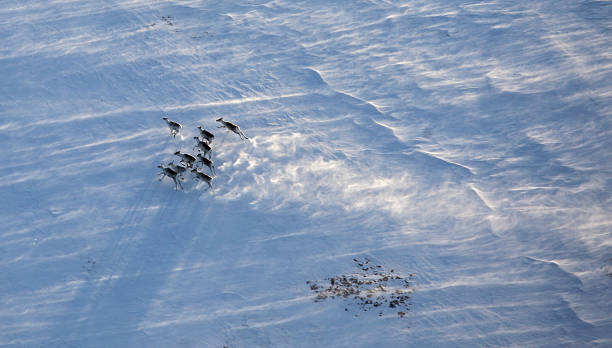Winter hunting is both challenging and rewarding. The cold weather and snowy landscapes provide a unique experience for hunters, while offering the opportunity to hone survival skills. If you want to be successful in winter hunting, here are some practical tips and strategies to guide you.
1. Dress Appropriately
The key to winter hunting is staying warm and comfortable. The right clothing can help you maintain energy and focus on the hunt despite the cold. Here are some dressing tips for winter hunting:
- Layering: Use the “layering method” – a moisture-wicking base layer, an insulating mid-layer (such as wool or down), and a waterproof, windproof outer layer.
- Warm Accessories: Wear warm gloves, a scarf, a hat, ear protection, and slip-resistant snow boots. Hands and feet are the most vulnerable to the cold, so ensure these parts are well-protected.
- Waterproof Clothing: Snow and moisture can easily soak through your clothes, so opt for waterproof and breathable materials to keep you dry.
2. Understand Animal Behavior
In winter, many animals alter their activity patterns. For example, deer and wild boar often seek shelter in warmer or wind-protected areas. Understanding the winter habits of wildlife is essential for a successful hunt.
- Search for Food Sources: Winter means food is scarce, and wildlife tends to gather around food-rich areas. Look for dropped nuts, berries, or water sources nearby.
- Leverage the Weather: Snow can help you track animal footprints, which gives you a clear idea of their movements. Pay attention to footprints to follow animals more efficiently.
3. Prepare Your Gear
Winter conditions and cold temperatures can take a toll on your hunting equipment. Make sure your gear is in top condition before heading out:
- Firearms & Bows: Guns and bows may become unstable in low temperatures. Clean and lubricate your equipment before use. For bows, check the stability of arrows and bowstrings to prevent moisture-related issues.
- Scopes & Cleaning: Winter weather can affect your scope. Keep the lens clean and free from frost and moisture to ensure clear visibility and accurate shots.
4. Bring Sufficient Supplies
When hunting in winter, especially in remote areas, ensuring you have enough supplies is crucial. Extended time outdoors means faster energy depletion.
- High-Calorie Foods: Pack high-energy foods like nuts, energy bars, and chocolate to sustain your energy levels throughout the day.
- Water: Even in cold weather, staying hydrated is important. Consider bringing a thermos with hot water or drinks to help you stay warm.
5. Choose the Right Hunting Area and Time
In winter, picking the right hunting grounds and timing is crucial. Here are a few things to keep in mind:
- Best Locations: Forest edges, valleys, snowy fields, and frozen water bodies are ideal for winter hunting. These locations increase your chances of spotting animals.
- Optimal Timing: Since daylight hours are shorter, animals are more active at dawn and dusk. Plan your hunting trips during these periods for better results.
- Wind Direction: Wind is a critical factor in winter hunting. Avoid hunting directly against the wind, as animals are highly sensitive to scent. Use wind direction to your advantage for better concealment.
6. Safety Preparations
Winter hunting presents increased risks, so proper safety measures are essential:
- Communication & Navigation: Ensure you have reliable communication devices and that they are fully charged. The risk of getting lost is higher in snowy and unfamiliar terrain.
- First Aid Kit: Accidents can happen in the cold. Carry a well-stocked first aid kit with essentials like bandages, frostbite ointment, and tourniquets.
- Hunt with Companions: Never hunt alone in winter. Having a partner not only provides safety in case of emergencies but also helps you in tracking and hunting more effectively.
7. Handling and Preserving Your Catch
The cold temperature can help preserve your catch, but handling it properly is key to maintaining quality.
- Quick Processing: Process your catch as soon as possible to prevent it from freezing or losing freshness. Have the necessary tools for skinning, gutting, or processing the meat.
- Storage in the Cold: If the animal is large, take advantage of the cold weather for storage. Use insulated bags or coolers to preserve the meat until you can get it back home.
Conclusion
Winter hunting offers a unique challenge and rewards for those who are prepared. To ensure success and safety, it’s crucial to understand local wildlife habits, equip yourself with the right gear, choose suitable hunting locations, and plan for optimal timing. The winter environment demands extra caution, but with the right preparation, it can provide an unforgettable hunting experience. May these tips help you make the most of your winter hunting adventure and enjoy the beauty of the season.


